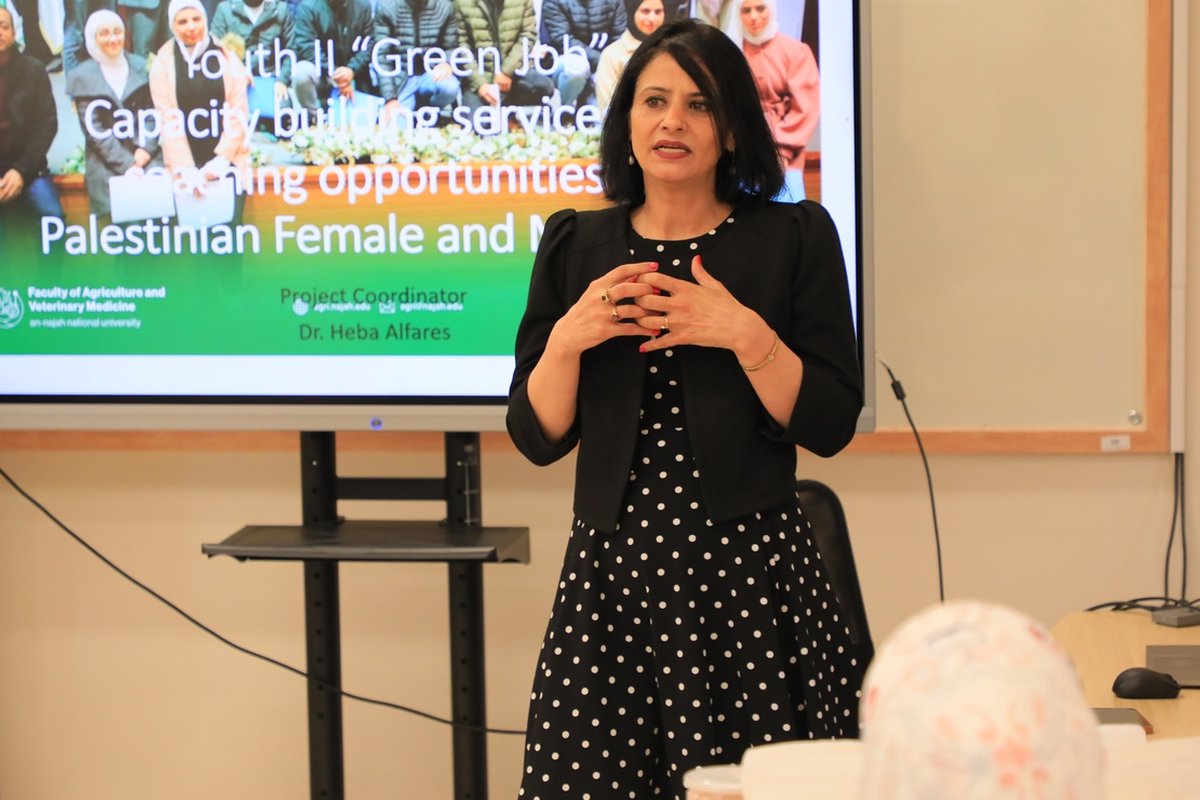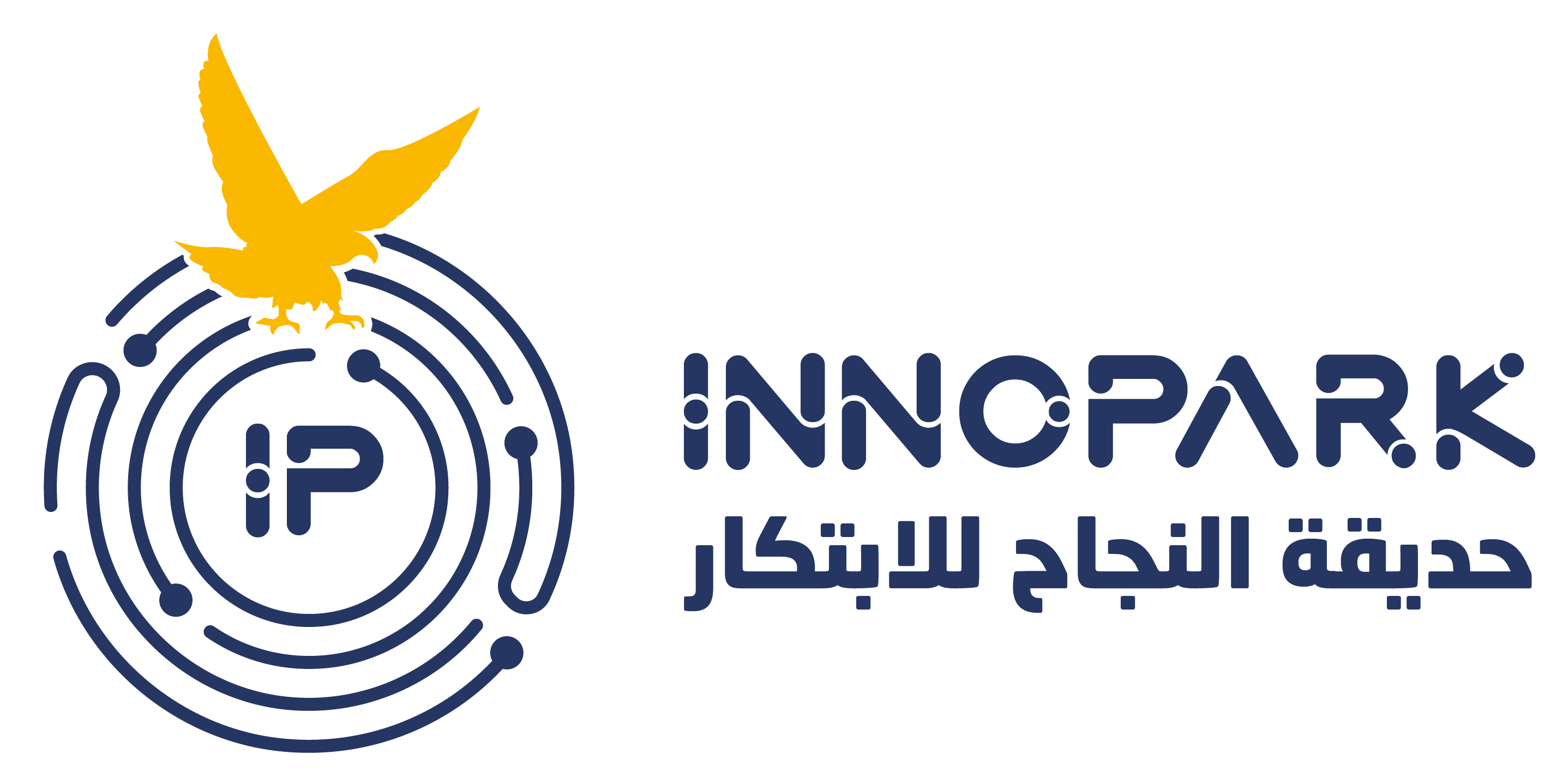An-Najah University Organizes Green Entrepreneurship and Sustainable Development Forum

Empowering Young Men and Women in the Agri-Food Sector: An-Najah University Organizes Green Entrepreneurship and Sustainable Development Forum
On June 21, 2025, An-Najah National University, in partnership with the Food and Agriculture Organization of the United Nations (FAO), organized the "Green Entrepreneurship and Sustainable Development Forum." This event falls under the project "Green Jobs and Sustainable Income Opportunities for Palestinian Young Women and Men in the Agri-Food Sector," which the university is implementing under the supervision of Dr. Hiba Al-Faris, Project Coordinator.
The forum aimed to highlight the success stories and entrepreneurial initiatives that emerged from the program. Over 222 young men and women (77% female) received 70 hours of training covering theoretical and practical aspects in sustainable agriculture, value chains, and green entrepreneurship. The program also provided practical training opportunities for over 130 trainees in local institutions and companies operating in the agricultural and food processing sectors across the West Bank, offering them direct practical experience in work environments. This training resulted in several participants receiving actual job offers at their training sites, reflecting the program's effectiveness in linking vocational qualification with local labor market needs.
In a move towards digital and technical empowerment, participants received specialized training from Prof. Allam Mousa, Director of An-Najah Innovation Park, and Mr. Waleed Abu Zaina from the University's Virtual Reality Center, focusing on artificial intelligence (AI), virtual reality (VR), and augmented reality (AR) technologies. Emphasis was placed on their applications in the food industries, agriculture, and veterinary medicine, adding a qualitative dimension to the program and connecting youth with the latest tools of the digital revolution.
During his speech, Prof. Allam Mousa highlighted the pivotal role played by An-Najah Innovation Park in supporting and empowering youth in entrepreneurship. This is achieved by providing an incubator environment and advanced technologies that help them transform their ideas into sustainable productive projects with economic and social impact.
For her part, Dr. Al-Faris thanked the partner and supporting institutions for this project and showcased the project's achievements, demonstrating its importance in realizing the university's vision and mission in sustainable development and community service, its commitment to youth empowerment, and the promotion of agricultural entrepreneurship. She also touched on poverty eradication, hunger, decent work, and climate change. She affirmed that Palestinian youth, especially young women, have demonstrated high capabilities and a genuine readiness to lead change in the Palestinian food and agricultural system, noting that the university continues to support these initiatives through incubators and technical and vocational guidance programs.
The forum also featured presentations of winning student projects that received funding of up to $15,000 per project. Out of approximately 70 projects submitted, 37 winning projects came from An-Najah students, selected through two-phase calls launched by FAO for project trainees. The competition included five Palestinian universities.
The submitted projects varied across sustainable agriculture, healthy foods, hydroponics, and the development of improved livestock breeds. Among the most prominent initiatives were: "Yafa Nursery," "Dragon Fruit Garden," "Zeina Factory," "Safe Sheep Artificial Insemination Project," "Rihana Farm," "PetoChif," and "Lozeina Factory."
Participants in the forum expressed their gratitude to An-Najah National University, FAO, and An-Najah Innovation Park for the support they received during the training, guidance, and implementation phases. They affirmed that this initiative marked a turning point in their journeys and contributed to developing their skills and moving towards self-reliance. The projects also helped create real job opportunities within local communities and fostered a culture of entrepreneurship among Palestinian youth.
